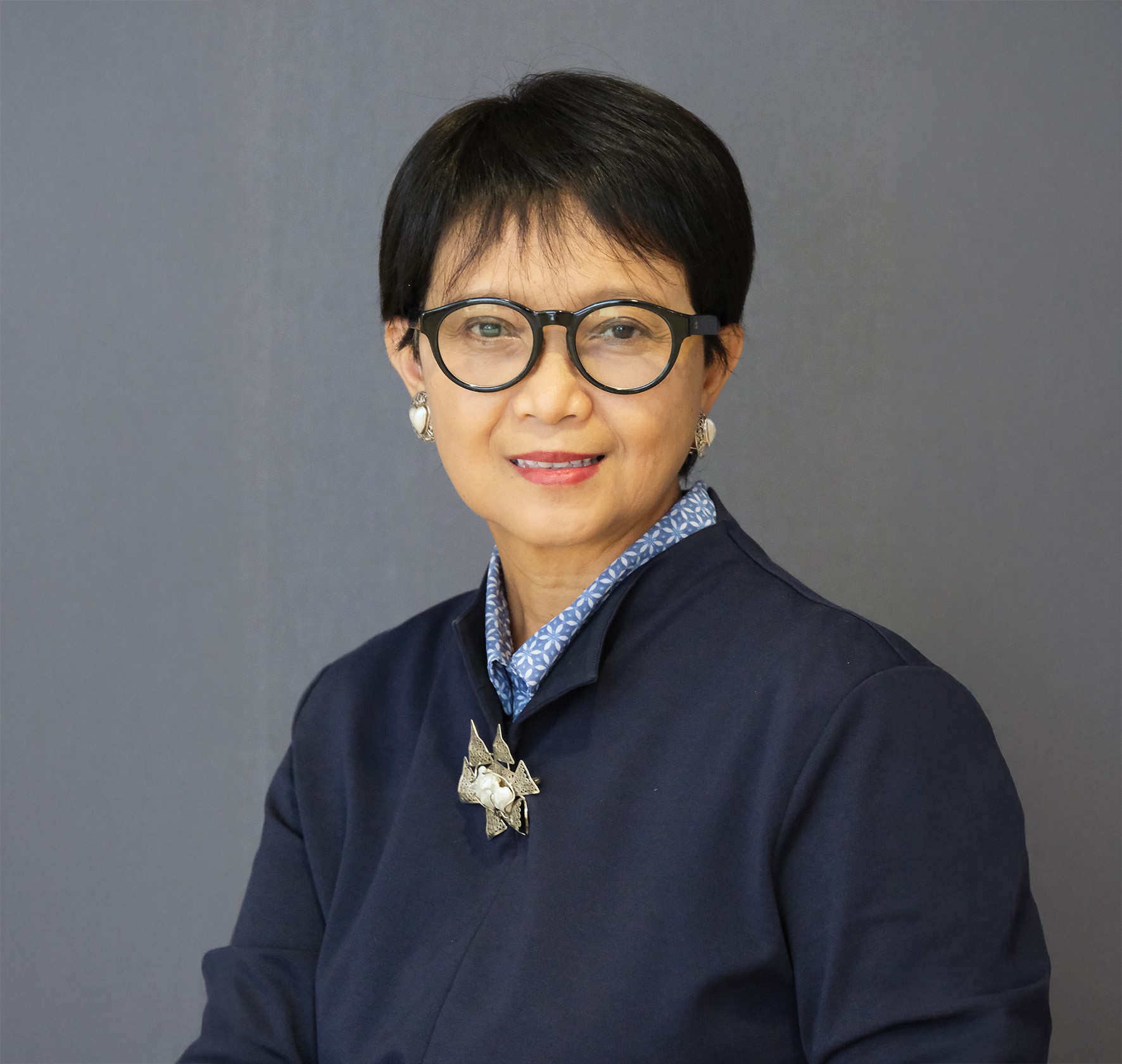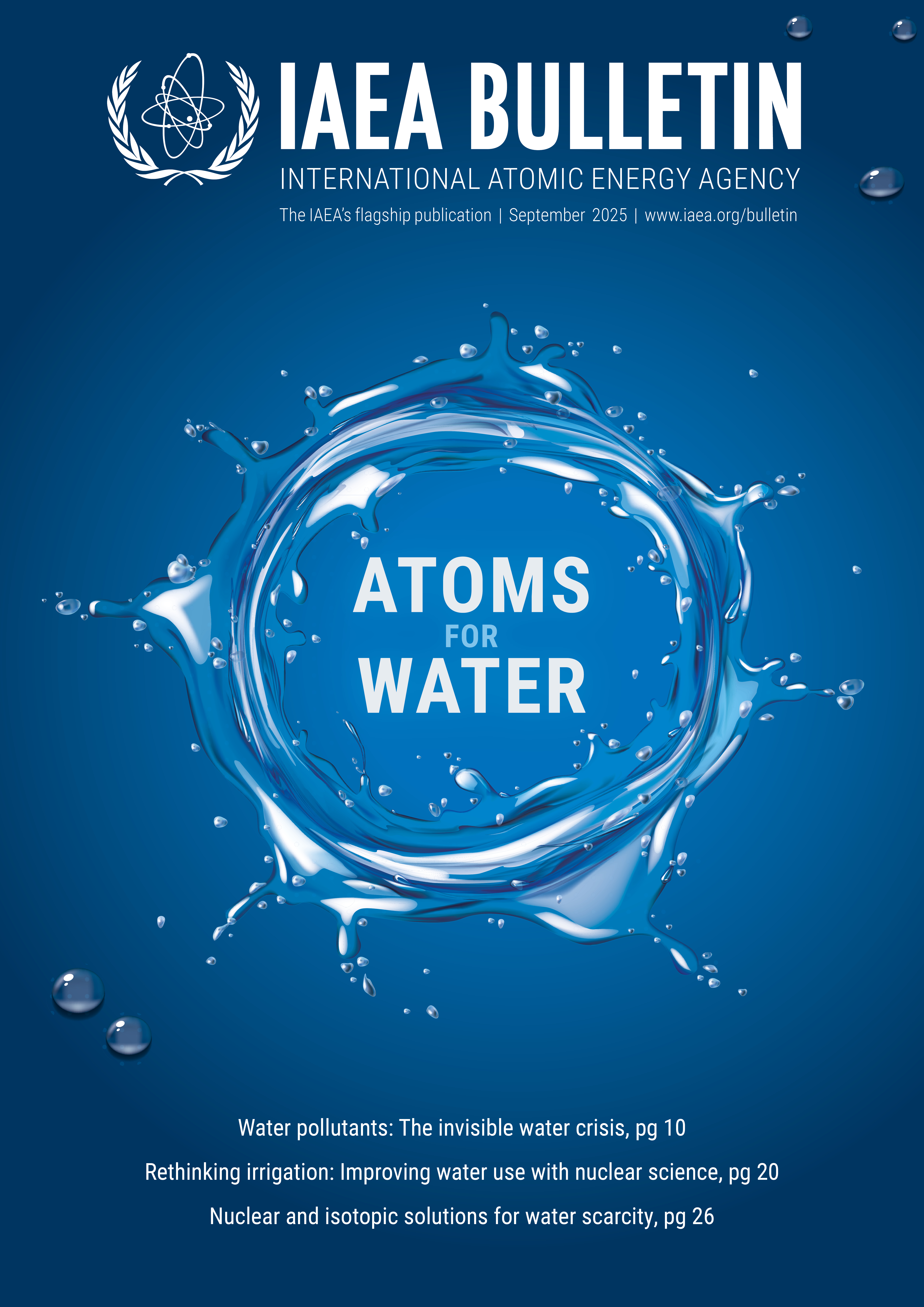The United Nations Secretary General’s Special Envoy on Water, Retno Marsudi, shares her views on what needs to be done to ensure a water-resilient future for everyone. A global advocate for water issues, she supports efforts to mobilize action and resources and to strengthen international cooperation to advance the global water agenda. From 2014 to 2024, she served as Indonesia’s Minister for Foreign Affairs.
Water is everyone’s responsibility

(Photo: AdobeStock)
What does water mean to you personally?

Water has always been deeply personal to me.
As a woman, I understand how water-related challenges disproportionately affect women and girls. In many parts of the world, water scarcity and limited access to safe water place an unequal burden on them, forcing them to travel long distances to fetch water for their families.
However, women are also leaders of change. I believe — and evidence consistently shows — that women’s leadership in water leads to more sustainable and equitable outcomes, not only in water but across all other development sectors.
I also believe that responsibility for water management goes beyond global commitments or institutional mandates. It speaks to our very existence, our dignity, and the life of future generations. Talking about water is not just talking about infrastructure or systems — it is talking about survival. It is about protecting the foundation of life and livelihoods.
That is why the responsibility to implement global water commitments carries great weight. It is not just about policy. It is about improving lives — everywhere, for everyone, especially for those most often left behind.
What do you see as the key priorities for achieving sustainable water resources for our planet?
Water is essential to life, and today our world’s water systems are under stress like never before.
An estimated 2.4 billion people live in countries experiencing water stress. In 2022, at least 1.7 billion people globally relied on drinking water from contaminated sources.
Climate change and extreme weather events are only exacerbating this situation, with the year 2024 being the warmest on record. Urgent and multifaceted action is needed, including strengthening research, building capacities, empowering women and youth to foster innovations, and many more efforts.
At the core of all these efforts is one indispensable element: international cooperation, grounded in global solidarity.
International cooperation is key to translating global commitments into concrete actions. Unfortunately, water financing remains insufficient and is declining globally. Meeting future demands for water and water infrastructure will require an estimated $6.7 trillion by 2030, and over $22 trillion by 2050.
To achieve a water-secure future, we must prioritize bold international collaborations — particularly in financing, technology development, and capacity building for those most in need.
What are the most effective approaches to accelerating efficiency, resilience and sustainability in water management?
In my dialogues with countries and water stakeholders, I consistently emphasize that water is everyone’s responsibility. No single individual, institution or country can address global water challenges alone. Governments, the private sector, academia, civil society organizations and others must all be inclusively engaged in shaping and implementing water management efforts.
A multi-stakeholder approach strengthens ownership by ensuring that all actors are on board in the planning, implementation and evaluation of water solutions. It draws upon the diverse expertise and capacities that each stakeholder brings to the table.
Equally important is a multisectoral approach that integrates water across all dimensions of development. Through integrated water resources management, water can serve as a unifying solution to multiple global challenges, including poverty eradication, climate resilience, food and energy security, disaster risk reduction, and the empowerment of women and youth.
These approaches depend on a robust operational framework. This is where the ‘Triple A’ principle (advocacy, alignment, and acceleration of actions) becomes critical: advocacy to elevate water as a common priority; alignment to bring coherence in all water-related initiatives; and acceleration to fast-track innovation and action.
Lastly, we must not miss the chance to capitalize on the transformative role of technology, in accelerating the efficiency, resilience and sustainability of water management. With technology we can ensure the effective management and use of water. We can produce more — more food, more energy, more economic growth — with less water.
Where do you see the greatest potential for the IAEA to help address water challenges using nuclear sciences and technology?
With its strong focus on research, development and capacity building, the IAEA has a lot to offer.
Isotope hydrology stands out as a powerful example of the transformative potential of nuclear sciences to address complex water-related challenges. The ability of isotope hydrology to precisely trace the origin, age and quality of water makes it a game-changer in water resource management.
Isotope hydrology also offers us a deep understanding of the world’s water systems, not only enabling us to respond to existing challenges, but also to anticipate and prepare for future water-related disaster risks. It strengthens early warning capacities and long-term water resilience planning.
I encourage the IAEA to continue to prioritize the application of nuclear sciences in the most pressing water challenges, especially those disproportionately affecting developing countries such as drought and water scarcity, flood risks from extreme weather and water pollution. Through the application of nuclear science and technology, I believe the IAEA will contribute to enhancing global water resilience.
What are your hopes and expectations for the 2026 United Nations Water Conference?
I am guided by the hopes and expectations consistently expressed by countries and water stakeholders around the world.
Expectations for the 2026 United Nations Water Conference are high. It will be a critical milestone in advancing global water progress and a pivotal opportunity to accelerate the achievement of Sustainable Development Goal 6 (clean water and sanitation).
The conference is also expected to inform and shape the future of the global water agenda beyond 2030. This reflects a growing awareness that ensuring our water future requires not only immediate actions but also a clear vision for tomorrow, not just for the world’s people but also for the planet.
The success of the 2026 United Nations Water Conference relies heavily on the strong commitment of countries and water stakeholders around the world. Meaningful and actionable results can only be attained through inclusive and transparent preparation processes. I am keen to collaborate with the IAEA towards this goal.
